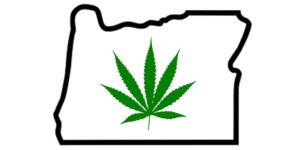Marijuana Sows Confusion For Employers
In our Election 2016 wrap-up, The Bullard Edge discussed the recreational use referendum adopted by Maine voters. The new law follows the old formula to a point by allowing persons 21 years of age and older to possess and use marijuana.
The Maine referendum also includes a form of employment protection. On the one hand, it states that an employer “may not refuse to … employ … or otherwise penalize a person 21 years of age or older solely for that person’s consuming marijuana outside of the … employer’s …property.” However, the official voter guide (which is not part of the law itself) explains that the law is not intended to bar employers from “adopt[ing] and enforc[ing] policies restricting use of marijuana by employees” or from “disciplin[ing] employees who were under the influence of marijuana in the workplace.”
This permission to discipline employees who are “under the influence of marijuana in the workplace” is a legal mystery. It suggests that something more than the presence of marijuana in the system will be required. However, what that might be is unclear. Currently there is not a way to test for marijuana impairment (like there is for alcohol).
The unavailability of precise testing is the reason that most employers use “any detectable level” of marijuana in the system as the under the influence standard. This does not mean that everyone who tests positive is in fact impaired. Rather, it indicates that employers are erring on the side of safety. The new Maine law calls into question whether an “any detectable level” standard will be upheld by a court (in Maine or in any other state that adopts similar statutory language).
Employer safety concerns are not unfounded. Earlier this month the Highway Loss Data Institute, an insurance industry research group dedicated to reducing deaths, injuries and property damage from motor vehicle crashes, released a study linking legalized recreational marijuana to an increase in motor vehicle crashes. The HLDI study focused on crashes in Oregon, Washington and Colorado during the years 2012 to 2016 and concluded that legalizing recreational marijuana use in those states “has resulted in collision claim frequencies that are about 3 percent higher overall than would have been expected without legalization”. The HLDI acknowledges earlier studies (before legalization) that failed to find a definitive connection between marijuana use and increased accident rates.
This suggests that more study is needed regarding the impact of marijuana on safety. States and the federal government need to invest in this study and need to understand that real study is going to take time. The question is whether employers will be allowed to continue to err on the side of safety during this period of study.
The Attorney General and the Secret Service
As The Bullard Edge has previously reported, while marijuana remains an illegal drug under federal law, for the past few years the federal budget acts signed by President Obama expressly defunded Department of Justice from using funds to interfere with state medical marijuana laws. In other words, the DOJ was not able to prosecute medical marijuana dispensaries for violation of federal law.
2017 brought a change in administration. President Trump’s appointment of Jeff Sessions as Attorney General raised the possibility of a new direction. When he was still Senator Sessions he said, “Good people don’t smoke marijuana.” The question when he was appointed was whether Attorney General Sessions would seek to reverse federal enforcement policy and to enforce federal law in states that have adopted marijuana-legalization measures.
That question has been answered. In a May 1, 2017 letter to Congressional leaders Attorney General Sessions expressly informed Congress that he opposed “the inclusion of language in any appropriations legislation that would prohibit the use of Department of Justice funds or in any way inhibit its authority to enforce the Controlled Substances Act (CSA).” The letter, which became public earlier this month, clearly indicates that the DOJ is interested in the ability to prosecute under federal law those who operate marijuana dispensaries authorized by state law.
Contrast the DOJ’s push to expand its prosecutorial permission with the Secret Service’s recent announcement that it rolled back its policies with respect to marijuana and new hires. No, the Secret Service is not planning to allow marijuana use. However, the agency “will no longer disqualify an applicant who has used marijuana more than a certain number of times, instead potentially allowing a candidate who admits to using the drug, taking into consideration the time between his or her last use and their application to the agency.” The Secret Service needs to boost its workforce and is acknowledging that this change in its hiring policy is needed to accomplish that.
The Secret Service’s struggle to find employees is similar to the struggles of a number of employers around the country. The number of people using marijuana is increasing, which means that the number of applicants and employees who use marijuana also is increasing.
Disclaimer: Articles featured on Oregon Report are the creation, responsibility and opinion of the authoring individual or organization which is featured at the top of every article.


